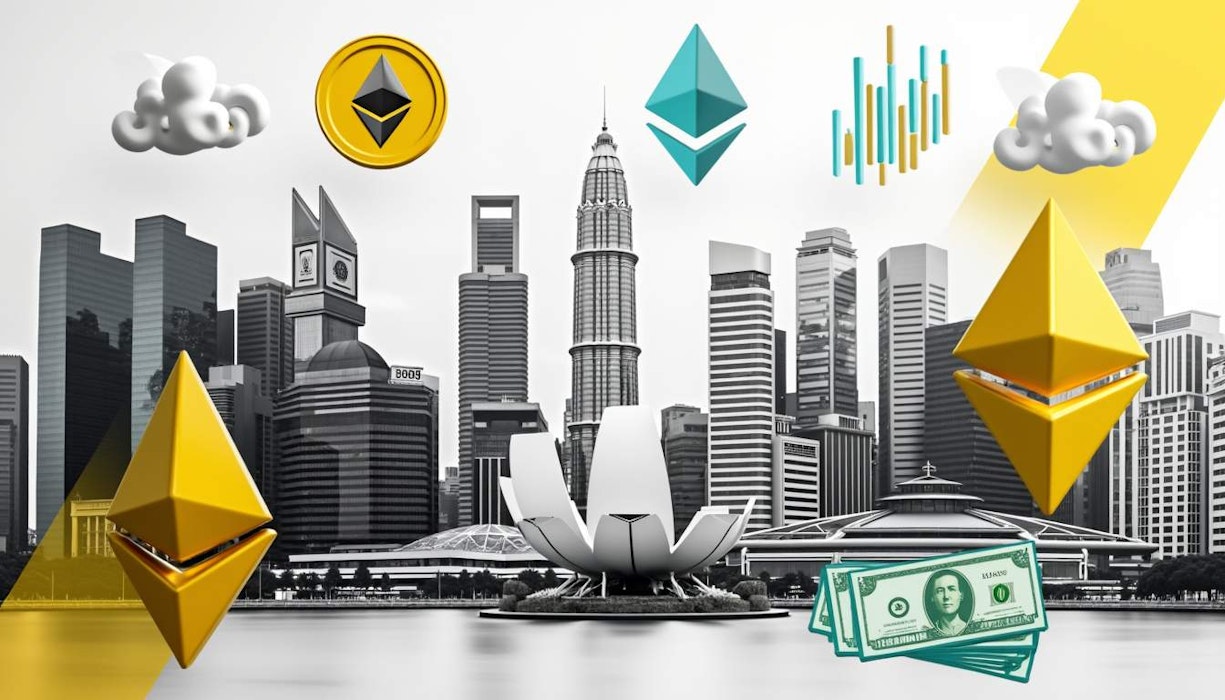2024: The Year of Crypto Licenses
2024 is shaping up to be a big year for crypto in Singapore as they hand out 13 crypto licenses, which is more than double what was given out in 2023. Big players like OKX, Upbit, BitGo, and Anchorage have all decided to set up shop in Singapore. What’s interesting about Singapore is its ability to balance regulation with innovation. Unlike other places, like the US, where regulation has stifled innovation, Singapore is looking to cultivate it.
Singapore: The New Crypto Capital
Singapore’s regulatory environment is being hailed by industry players as a "safe, long-term choice." The Monetary Authority of Singapore (MAS) is taking steps to keep up with the fast pace of innovation, including Project Guardian, which looks to support asset tokenization and strengthen the crypto market. Because of this, 1,000+ Web3 companies have decided to make Singapore home, solidifying its reputation as a major crypto hub.
A Note on Global Licensing
In comparison, Hong Kong has only licensed 7 platforms, and even some of the biggest exchanges have withdrawn their applications.
The Framework of Singapore's Crypto Regulation
Singapore’s main regulatory framework for digital payment token (DPT) services comes from the Payment Services Act (PSA), introduced back in 2019. This act requires crypto businesses to get licenses and follow stringent AML and CTF regulations. The MAS has introduced new custody requirements, demanding that customer assets be held in trust accounts. This is aimed at enhancing the transparency and security of customer funds.
The Comparison Game
While Singapore has a unified and clear regulatory framework, other countries like the US have a patchwork of regulations. In the US, different laws cover cryptocurrencies, with various agencies overseeing them, which leads to confusion. Japan has more progressive regulations but they still require registration with the Financial Services Agency (FSA) and compliance with AML/CFT obligations.
Innovation Meets Protection in Singapore
Singapore’s regulations are designed to protect investors and enhance transparency. The MAS has put strict conflict-of-interest policies in place and conducts regular assessments of trust accounts to ensure customer funds are safe. This clarity has prompted major financial institutions, including DBS, to develop new crypto financial products, integrating the digital realm with traditional banking.
Projects Pushing Innovation
Projects like Project Guardian showcase Singapore’s commitment to innovation. This initiative is exploring asset tokenization and DeFi use cases, creating a permissioned liquidity pool with tokenized bonds and deposits alongside major financial institutions like JPMorgan and DBS. The focus is on collaboration between new and established players.
Risks of an Inclusive Approach
However, an inclusive approach to digital currency platforms does come with its own set of risks. The MAS has revised its regulations to indicate a higher risk for crypto exchanges. This aims to prevent terrorist groups from exploiting Singapore’s financial system and acknowledges that DPT service providers possess significant risks and vulnerabilities in the context of AML and CFT.
Risks Include:
- Money Laundering and Terrorist Financing: DPTs are attractive for illicit activities due to their pseudonymous nature.
- Cyber-Enabled Fraud: Risks include ransomware, thefts, and other cyber-enabled frauds.
- Sanctions Risks: Transactions involving wallets belonging to sanctioned individuals are a concern.
- Illicit Activities: Other threats include illegal online gambling, drug offenses, and corruption.
Singapore as a Model for Other Regions
To sum it all up, Singapore's regulations shine for their clarity and comprehensiveness, all while focusing on innovation and consumer protection. This positions Singapore as a top crypto hub, a model for others to aspire to. As the digital currency landscape evolves, Singapore's balanced regulatory framework stands as a potential blueprint for other jurisdictions looking to foster innovation while safeguarding consumers.
Other countries, especially in Latin America, can learn from this model to create a more secure, transparent, and user-friendly cryptocurrency trading environment. Singapore serves as an exemplary case of how to build a thriving digital currency ecosystem with a balance of innovation and robust oversight.
